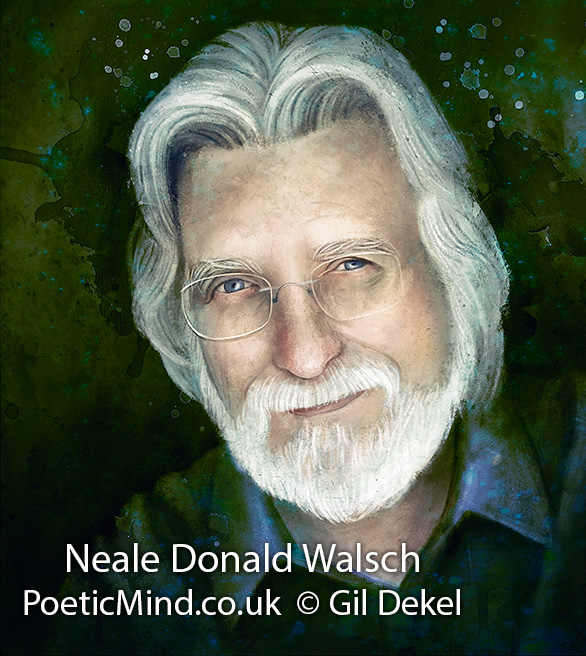
By Dr. Gil Dekel.
pages 342 (in the printed book)
We are able to give to relationships everything we wish to receive from them.
343
Love and freedom are the same thing. To love is to grant freedom to your beloved. Free means Free to do everything. There is no semi-freedom
344
So, we all have the freedom right now in our relationships. Yet, we blame others for leaving us, or for hurting us – we blame them because we forgot Who We Are.
Relationships are based on total freedom. That is how they work.
345
All choices have outcomes. Yet, outcomes are not a punishment. We all declare Who We Are, and our partners do not have to agree with Who We Are, yet they have to notice it. One’s free will can be a choice to avoid being near people who smoke; while the partner free will can tell them to choose to still smoke in the house. There is no need to take offence at the choices coming from one’s free-will. To say that you are hurt by your partner’s free-will’s choice, is to deny Who You Are and Who They Are.
346
Forgetting Who We Are, and playing ‘victims’ bring unhappiness.
349
Everything we do in Life is out of free choice. If you do something because you do not want to lose a relationship – you do it out of your free will, out of your choice to do it – your free choice to try keep the relationship. It is driven from your free choice. You have noticed what is required to stay in that relationship and you have freely decided to do it. Personal relationships are great training grounds for creating and expressing Who You Are.
350
Yet, people tend to make free choices and then say that they had no choice. This allows them to make themselves ‘the victims’.
When we need to choose between two ‘rotten choices’, it means that we are at an enormous breakthrough in experiencing Who We Are. Tough choices in our life are experiences where our soul is telling our mind, through our body, that we are at a crucial evolving point. We bring ourselves to such Crucial Choices six or seven times a life.

Portrait of Neale Donald Walsch (copyrights © Dr. Gil Dekel)
351
Welcome these Crucial Choices, as they offer rare opportunity to leap forward. They are life’s blessing.
358
We need balance in all. Too much of anything, even too much of spiritual practice – creates imbalance.
359
Futurising – thinking of the future, forgetting the Now.
366
All the wisdom that we need is within us already. We are having conversations with God all the time. When we search within, with pure heart and deep desire to know our truth, we then receive it. All we need to do is listen, and trust what we hear.
367
We all have insights and wisdom, and we need just open up to them. Many people believe that other people have inner wisdom, yet they do not think so about themselves.
370
First we define the place, then we think how to get there.
377
There is nothing we have to do to become enlightened. The realisation that we need not do a thing to be enlightened – is enlightenment…
379
Nothing matters, which means two things:
– We are free to choose and declare what matters to us, what meanings we give it.
– We are free to make matter what we choose, i.e. to turn it into physical form. To turn invisible energy into physical matter; to turn energy into matter.
381
Good health – being in joy and happiness regardless of how things are.
386
God requires no one to believe in God.
God has no gender, size, shape, colour.
God talks to all people, all the time.
God is separated from nothing, rather God is present in everywhere.
God is not a singular super-being, but Life itself.
God is ever changing.
God is needless.
God does not ask to be served, but God is the servant of Life.
God never condemns or judges. God loves unconditionally.
25 Oct 2015. © Gil Dekel.
This is a summary of key points and concepts from ‘Tomorrow’s God’, a CwG book published by Hodder & Stoughton, London, UK, 2004, ISBN 0-340-830239. www.cwg.org


 - Reading with Natalie, book here...
- Reading with Natalie, book here...